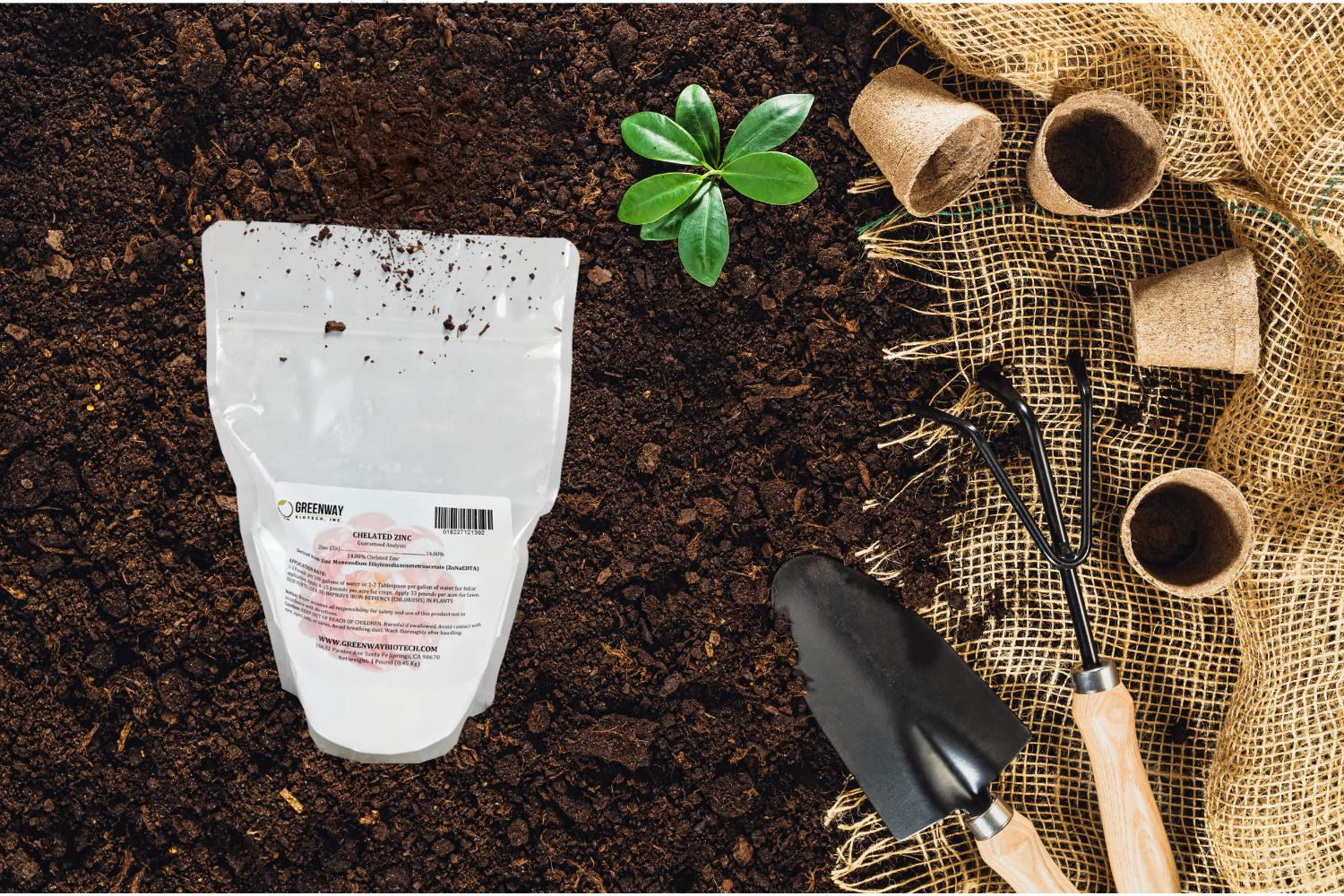How Can You Naturally Increase the Acidity of Your Soil?
•Posted on February 24 2023

Every farmer and gardener knows that plants are as picky as they are resilient.
Plants don't lie; the more fastidious you are in caring for your plants, the better the harvest or bloom come harvest time.
One of the factors that can affect your plant output is soil pH, a factor most farmers and gardeners become aware of when it's too late. But what is soil pH?
Related Post: What You Need to Know About Soil pH
What's Acidic Soil?

Soil acidity is measured on a pH scale lower than 7, which is neutral.
pH is the measure of hydrogen ions present in the soil.
The lower the number, the higher the acidity. On the alternate end of the scale is the alkaline scale from 7-14.
Recommended for You:

The higher the number, the higher the alkalinity.
Different plants prefer different pH levels for optimal growth, so you need to research and learn about your plant of choice before planting.
Testing Soil Acidity

The good news is you don't need special lab equipment to test your soil pH.
Here are a few ways you can test your soil acidity.
Related Post: How to Naturally Reduce Your Soil pH
The Pantry Test

This is an easy-to-perform pH test that only requires regular household items.
You will need a small amount of dirt and a half cup of vinegar.
If a mixture of the two fizzes, you have alkaline soil.
Recommended for You:

Use another fist full of soil moistened with distilled water and add a half cup of baking soda.
If the mixture fizzes, you have acidic soil.
Get a Soil Test Kit
If you have access to a gardening centre or store, you may get a soil test kit that can give you a rough estimate of how acidic or basic your soil is.
For accurate results, send soil samples to labs in your locality.
Signs Your Soil Needs More Acid

The best pH level for plant roots is 5.5 to 7.
Any higher or lower plants may get nutrient deficient or toxic.
You may notice stunted growth and dark green leaves with red or bronze colouring if your soil has low acidic levels.
You may also notice leaf necrosis, leaf tip burn, and withered stunted or twisted leaves.
All these are signs that the soil pH is too high to support plant growth.
Natural Ways to Increase the Acidity of Your Soil

Once you have figured out what soil pH your soil has, you can start taking measures to adjust to the right levels.
One way to lower your soil pH for acid-loving plants is by adding Ammonium Sulfate fertilizer.
Recommended for You:

This compound is especially effective if you are preparing soil pH for tomatoes, and it also stimulates quick growth in plants.
You want to be careful with this product as it can over-acidify your soil affecting your plants.
To increase soil pH for alkaline-loving plants, you can use materials like wood ash to get your desired pH.
Wood ashes contain potassium and calcium, which may not be as effective as limestone in increasing pH.
If you are unsure about the specific fertilizer amount to apply, start with a small amount and increase gradually.
Related Post: How Soil Moisture Can Affect Your Plant's Growth
What Are the Best Fertilizers to Use on Your Soil

Our Chelated Zinc EDTA is one of the top-quality fertilizers in the market.
It is a highly soluble essential micronutrient you can trust to increase your soil's acidity.
Chelated zinc is compatible with other fertilizers, which is great for farmers planting different crops.
Work With the Best Gardening Products
At Greenway Biotech Inc., we are dedicated to providing the best quality fertilizer for your crop.
Our products are typically easily water-soluble for quick absorption, making them highly effective in correcting soil pH for better plant growth.
Choose Greenway fertilizers today and see the difference in your farm or garden output this year.
Comments
0 Comments
Leave a Comment